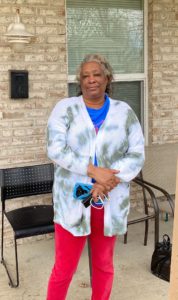
North Nashville, one of the city’s most under-resourced neighborhoods, was also one of the hardest hit in Tuesday’s storm. Residents say they’ve been historically ignored, and that cleaning up is only one part of preserving their community.
Twenty-four-year-old Cornelius Williams is walking down a congested road carrying a large grocery bag.
“I’m about to go fire up the grill,” says Williams.
He’s hoping to make the best of the situation after Nashville’s shocking tornado. Williams grew up in the area. He’s trying to figure out a way to process the damage to his neighborhood.
“In my lifetime. I never seen it like this in Nashville. We get tornadoes. But they usually never hit the middle city. You know what I mean?” says Williams. “I think it might bring people together.”
Immediately after the storm there was a sense of panic. Dozens of residents filled the streets.
But by the next day they were joined by hundreds of volunteers. While some cut trees and cleared debris from collapsed homes, others are watching from the comfort of their porches.
“It’s like you see it on TV, but then it hits you,” says Faith Mitchell, a lifelong Nashvillian.
Mitchell grew up on west side of town. She moved to North Nashville six years ago. She’s disabled, but use to be a childcare provider.
The grandmother of 12 is distraught after tree branches punctured holes in her back bedroom. She’s without power. And has been thinking about the moment she witnessed her half-clothed neighbors, exiting their homes after taking shelter from the tornado.
 Damon Mitchell WPLN News
Damon Mitchell WPLN NewsFaith Mitchell stands outside her home.
“Where are the people that we vote in? Where are y’all? That’s the only thing I’m asking,” says Mitchell, wiping tears from her eyes.
Mayor John Cooper did tour the neighborhood during the week. But she still believes they should be getting more help.
Metro Councilmember Brandon Taylor, who lives near Mitchell, told WPLN News the tornado was one of the scariest moments of his life.
“We went out with water, sodas, and anything we could get out of our refrigerator,” says Taylor. “A block away I couldn’t get any further without crawling under wires and stepping over telephone poles and trees.”
Mitchell’s concern is echoed by her neighbors. They say the community is usually only talked about when there is a shooting or homicide.
And then there’s another concern: Residents like Anton Nesbitt worry the disaster will change the landscape of the neighborhood.
“This is an opportunity for poor people to get pushed out. After they help clean the yards and cut the trees, then they’re going to buy them out,” says Nesbitt. “I think in the next 10 years, maybe five, it’s going to look totally different.”
His theory isn’t far-fetched. There’s a history of gentrification in Nashville after a major disaster. In the late 1990s, a tornado ripped through East Nashville, sparking a wave of high-priced restaurants and rising housing costs. Then the area’s black population started to fall.
“If you look throughout history, New Orleans, and all the major natural disasters, it’s been an opportunity for new development,” says Nesbitt.
Just hours after the tornado, residents say the streets were filled with unfamiliar faces snapping photos of the wreckage from SUVs and pick up trucks. Many fear they were developers there to target elderly neighbors and cash-strapped residents without housing insurance.
“Then you got some just walking and looking and taking pictures. You don’t know what they might be going to do,” says Mitchell.

